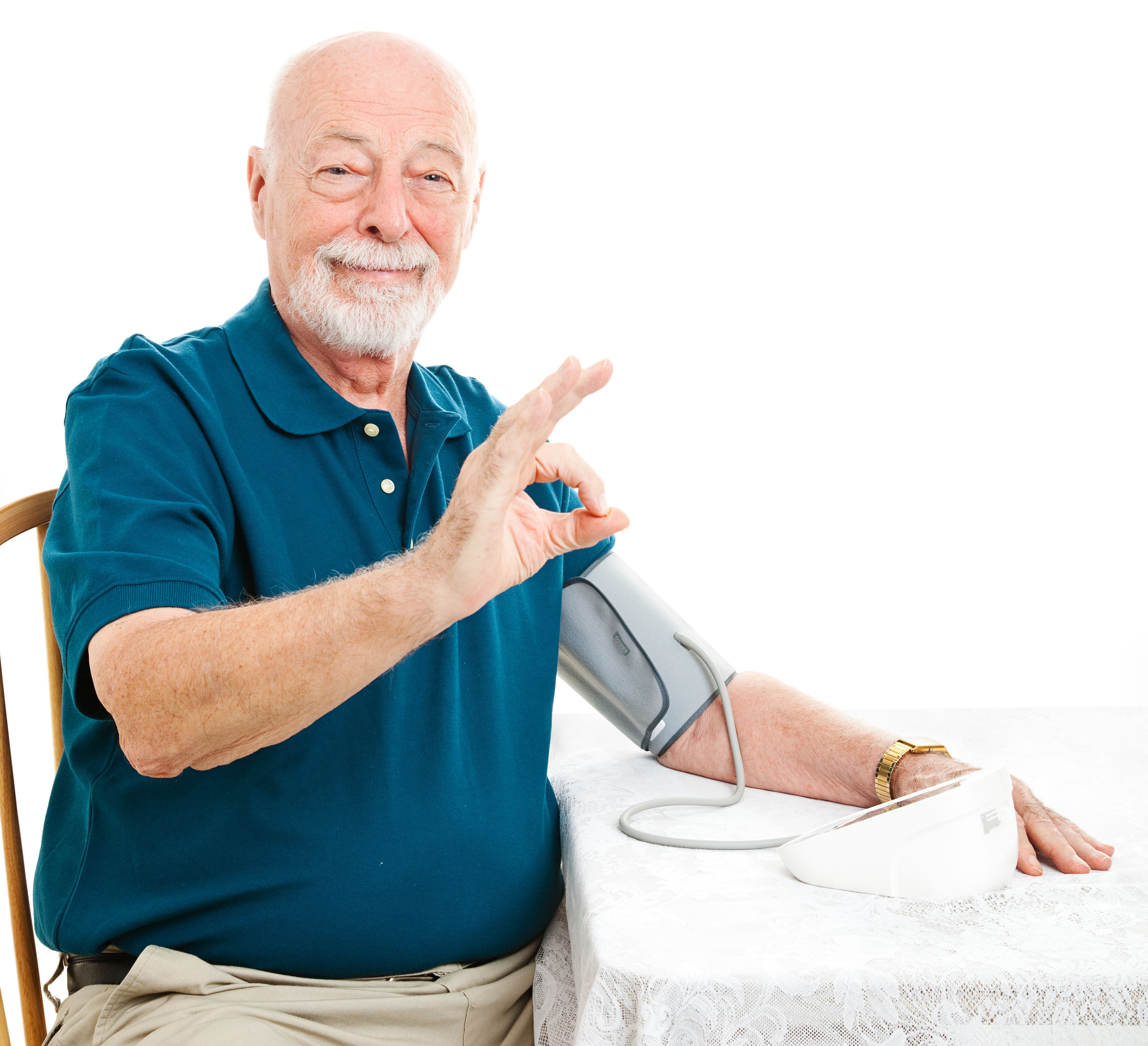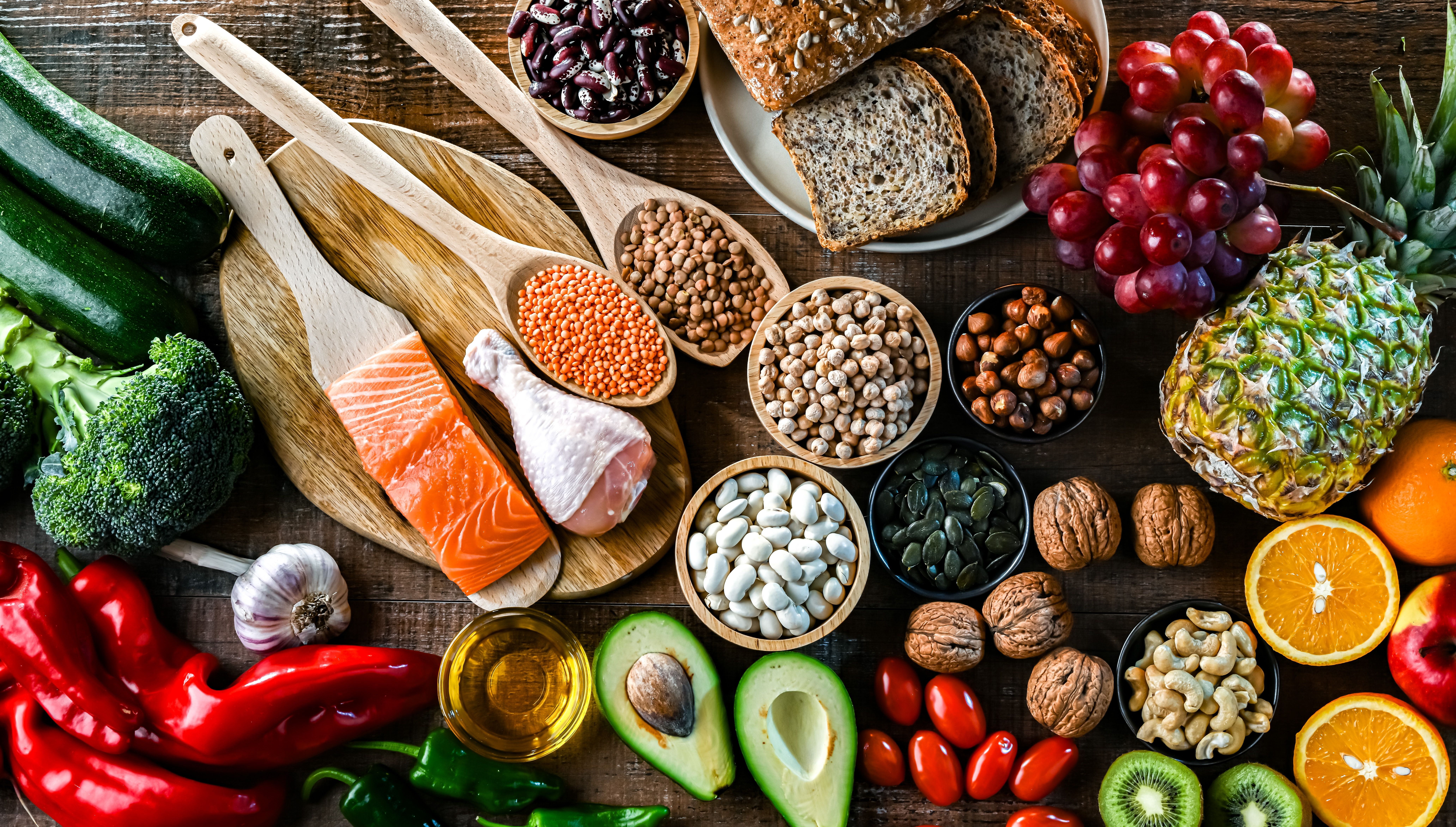Exercise, diet… what are the ways to lower blood pressure?

If left uncontrolled, high blood pressure raises your risk of heart disease and stroke. But there are natural ways to reduce high blood pressure.
What is good blood pressure by age?1,2
Blood pressure is the force of blood pushing against the walls of your arteries as the heart pumps blood, delivering oxygen and nutrients to organs and tissues throughout the body. A normal blood pressure reading is essential for your organs to work well and avoid damage.
Blood pressure readings can give insight into how hard your heart is working and are an important part of a general health indicator. Blood pressure is recorded as 2 numbers, measured in units called millimeters of mercury or mm Hg:
- Systolic pressure: the top number, which is the pressure each time your heart contracts.
- Diastolic pressure: the bottom number, which is the pressure in the artery as the heart relaxes before the next beat.
A normal blood pressure varies from person to person. Around 120/80 mm Hg is often considered a typical blood pressure reading for adults over 20. But blood pressure can change depending on health conditions, lifestyle factors, and also on your age and gender.
Below is a list showing good blood pressure by age (systolic and diastolic numbers):
- Newborns up to 1 month: 60–90/20–60 mm Hg
- Infants: 87–105/53–66 mm Hg
- Toddlers: 95–105/53–66 mm Hg
- Preschoolers: 95–110/56–70 mm Hg
- School-aged children: 97–112/57–71 mm Hg
- Adolescents: 112–128/66–80 mm Hg
- Women 18–39 years: 110/68 mm Hg // Men 18–39 years: 119/70 mm Hg
- Women 40–59 years: 122/74 mm Hg // Men 40–59 years: 124/77 mm Hg
- Women 60+ years: 139/68 mm Hg // Men 60+ years: 133/69 mm Hg

What about natural ways to reduce high blood pressure?2-5
When your blood pressure remains high for an extended period, it can be a sign of poor health and lead to serious health consequences, including an increased risk of premature death.
If you have high blood pressure, you can help manage it through some simple lifestyle changes.
- Maintain a healthy weight, lose extra weight, and watch your waistline: being overweight is known to raise blood pressure. Losing excess weight constitutes one of the best ways to lower blood pressure to healthier levels. In general, blood pressure might go down by about 1 mm Hg with each kilogram of weight lost. The effect is even greater when weight loss is paired with exercise. Moreover, the size of the waistline is important. Carrying too much weight around the waist can raise the risk of high blood pressure. Respectively, men and women are at risk if their waist measurement is greater than 102 and 89 centimeters.
- Follow a healthy diet: it is important to eat a nutritious diet, which is low in salt, saturated fat, trans fat, low-density lipoprotein (LDL) cholesterol, and sugar. This means eating a variety of vegetables, fruits, and whole grains and nutrients that can help lower blood pressure, by up to 11 mm Hg. Potassium in the diet can lessen the effects of table salt and sodium on blood pressure. Aim for 3500 to 5000 mg of potassium a day. It may lower blood pressure by 4 to 5 mm Hg. Foods that are particularly high in potassium include vegetables, especially leafy greens, tomatoes, potatoes, and sweet potatoes; fruit, including melons, bananas, avocados, oranges, and apricots; dairy, such as milk and yogurt; tuna and salmon; nuts and seeds; beans. To lower sodium in your diet, eat fewer processed foods, do not add table salt, use herbs or spices to add flavor to food, and cook to control the amount of sodium in your food.
- Exercise regularly: being physically active every day, even simply through activities such as walking and gardening, is also one of the best ways to lower blood pressure. Regular aerobic exercise can lower high blood pressure by about 5 to 8 mm Hg. As a general goal, aim for at least 30 minutes of moderate physical activity every day. Some examples of aerobic exercise that can help lower blood pressure include jogging, cycling, swimming, and dancing. Another helpful type of exercise is high-intensity interval training, which involves mixing short bursts of intense activity with bouts of lighter activity. Strength training also can help lower blood pressure. Aim to include strength training exercises at least 2 days a week.
- Quit smoking: not smoking has been shown to reduce blood pressure as well as its damaging effects on the arteries. It also can lower the risk of heart disease and improve overall health, possibly leading to a longer life.
- Avoid or limit alcohol: regular excessive drinking has a clear link to ongoing high blood pressure. Drinking too much alcohol also can make blood pressure medicines less effective. It has been shown that heavy drinkers with high blood pressure may be able to lower their levels by cutting back to moderate drinking. Indeed, limiting alcohol to less than 1 drink a day for women or 2 drinks a day for men can help lower blood pressure by about 4 mm Hg.
- Get a good night's sleep: getting fewer than 7 hours of sleep every night for weeks can play a role in hypertension. Conditions that can disrupt sleep include sleep apnea, restless leg syndrome, and general sleeplessness, also called insomnia. Adults should aim to get 7 to 9 hours of sleep every night. If you do not have sleep apnea or restless leg syndrome, you can follow these simple tips for getting more restful sleep: stick to a sleep schedule, by going to bed and waking up at the same time each day on weeknights and on weekends; create a restful space, in keeping the sleeping space cool, quiet, and dark, in turning off or dimming bright light, such as from a TV, phone, or computer screen; do not go to bed hungry or too full; limit naps to 30 minutes and take them early in the day.

- Learn to manage stress: long-term stress may play a part in high blood pressure. When you are chronically stressed, your body is in a constant fight-or-flight mode, which means, on a physical level, a faster heart rate and constricted blood vessels. This is why it is important to figure out what causes stress, such as work, family, finances, or illness, and then find ways to take charge of them. Try the following: do not try to do too much; focus on issues you can control and make plans to solve them; stay away from stress triggers; make time to relax; practice gratitude; listen to soothing music; work less; try meditation or deep breathing, which can activate the parasympathetic nervous system, help slow your heart rate, and lower blood pressure.
What about the other ways to lower blood pressure?5
If you have high blood pressure, your doctor may recommend one or more medicines, such as:
- Angiotensin-converting enzyme (ACE) inhibitors including enalapril and lisinopril, which relax blood vessels and prevent kidney damage.
- Angiotensin II receptor blockers (ARBs), such as losartan and telmisartan, which relax blood vessels and prevent kidney damage.
- Calcium channel blockers, such as amlodipine and felodipine, which relax blood vessels.
- Diuretics, including hydrochlorothiazide and chlorthalidone, which eliminate extra water from the body, lowering your blood pressure.